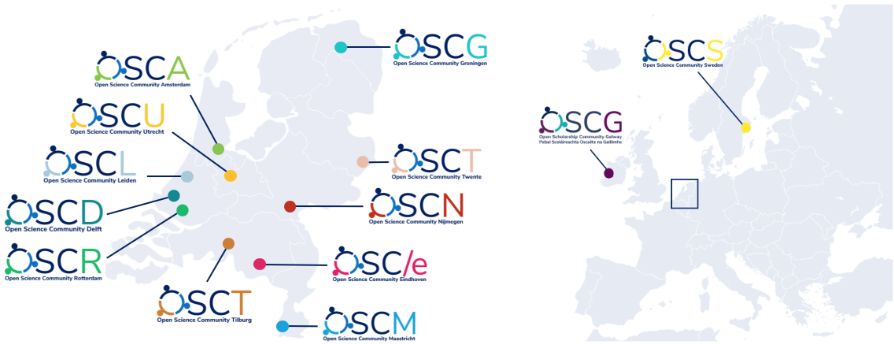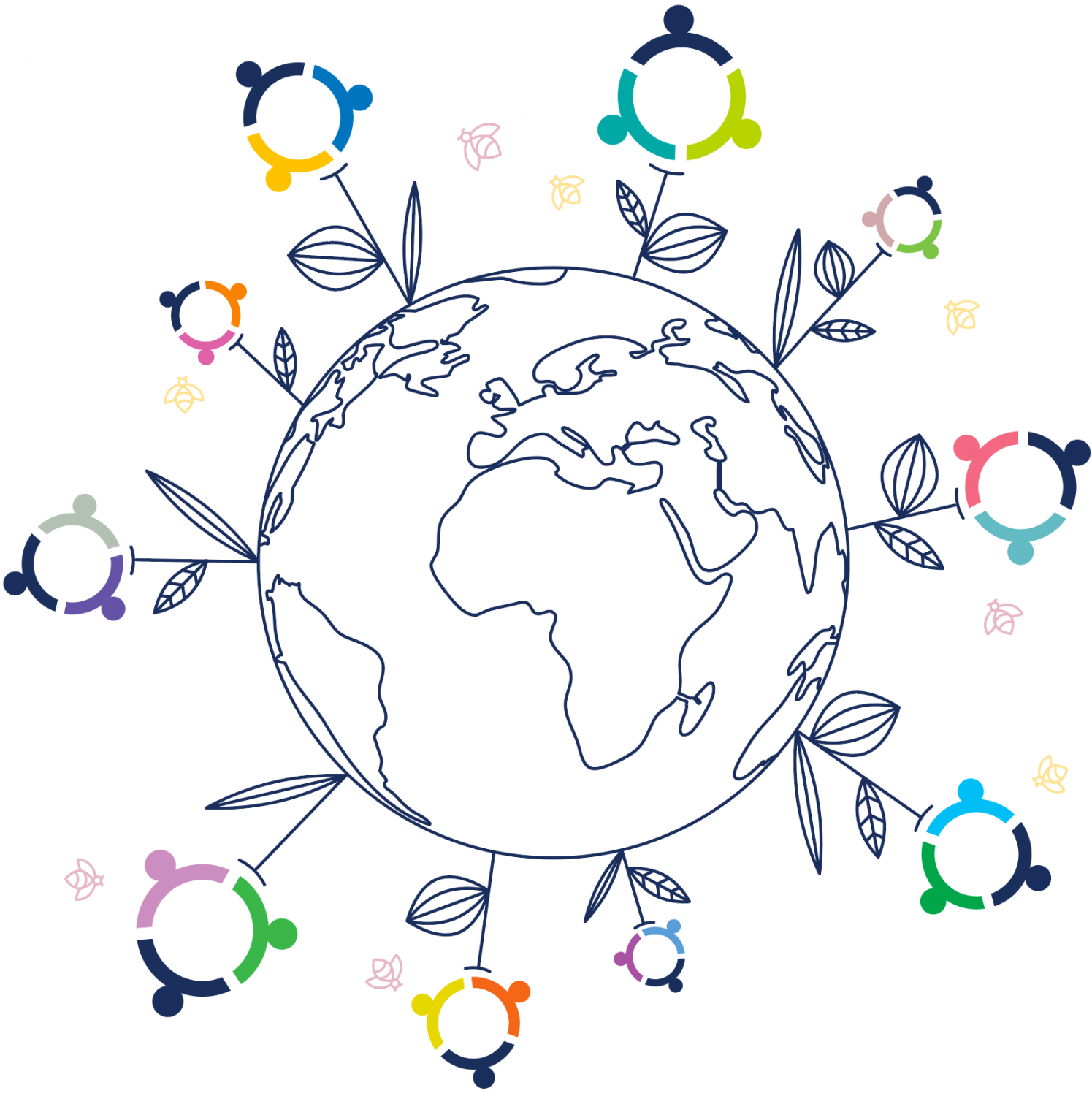What does academia want?
Directly to: Universities and other insitutions
Directly to: Open Science Communities
--
The principle of open access is widely supported within the Dutch academic world. Its aim, the free sharing of academic research results in the interests of scholarship, is hardly disputed. However, enthusiasm for open access and the way to achieve it differs across the various disciplines. Criticism has been levelled at its affordability and low status of open access publications.
Below is an overview of some major open access initiatives that have resulted from the efforts of researchers worldwide:
Open access is starting to gain ground in the humanities. Traditionally, many researchers have published in monographs, or chapters in monographs. Some promising new initiatives are OAPEN, Knowledge Unlatched, Open Library of Humanities and Open Humanities Press. The Social Science Research Network (SSRN) contains 700.000 papers.
Open access also ranks high on the agenda within the humanities in the Netherlands, with a symposium on open access journals in the humanities held in Utrecht in 2014. A film clip of researcher Wouter Henkelman (VU Amsterdam/NINO) highlights the importance of open access for these disciplines in an engaging way.
A group of prominent international linguists want to make the access to their scientific results less dependent of expensive commercial publishers. This unique initiative starts under the name LingOA.
Editorial staffs of various scientific journals in linguistics say good-bye to their present publisher and publish their articles at very low costs and make them accessible for the whole society. With this initiative the linguists try to move other journals to the direction of affordable open access.
Lawyers also support open access publishing. In March 2014 Boom Juridische Uitgevers launched Open Access Advocate (OAA), the first and only legal open access platform (in Dutch). In April 2014, 62 legal researchers sent an open letter (in Dutch) to Kluwer publishers, urging them to reduce the costs for universities wishing to access and re-use publications that they themselves have written.
- Many publications within the economic sciences take the form of preprints. RePEC is a frequently used international open access preprint archive.
- BioMedCentral is an example of a successful open access publisher in the medical sciences. The Dutch Cancer Society (KWF), which funds scientific research, supports open access through actions, not just words. In 2015 Bart Kiemeney, Professor of Cancer Epidemiology at Radboud university medical center in Nijmegen, made the case for open access (in Dutch) in the Volkskrant newspaper: he says that instead of continuing to line publishers’ pockets with taxpayers’ money, universities should publish their research work themselves.
- The Public Library of Science (PLoS) is a major international open access publisher in the life sciences. Many PLoS journals (including the multidisciplinary PLoS One) have since achieved a high impact factor. Dutch researchers are regular contributors to PLoS journals.
- ArXiv is a successful open access initiative in the exact sciences. Hosted by Cornell University, this preprint archive contains more than one 1 million open access articles on physics, mathematics, computer science and statistics. bioRxiv is a fellower for biology.
- In the broad field of physics, SciPost [https://scipost.org] is a complete publication portal run by active professional scientists. It is entirely not-for-profit, offers a novel peer-witnessed refereeing mechanism, provides beyond-gold-level openly-accessible publications (CC-BY license with copyright to authors), does not charge subscription or publication fees (two-way open access: free for readers and authors) and has all its activities under the direct control of professional scientists (in particular, all editorial decisions are taken communally by its Editorial College).
- SCOAP3 is a good example of the ‘golden road’ approach. This international partnership of libraries, funders and research centres has transformed key journals in the field of high energy physics into open access journals, at no additional cost to the authors.
- The Cost of Knowledge was a successful worldwide researcher initiative in 2012. More than 12,000 researchers signed the petition, which was initiated by a number of prominent mathematicians. The petition called on Elsevier to change its policy and to reduce the costs charged to universities and research institutes. In response, Elsevier has made the archives of a number of mathematics journals freely accessible.
- SIGMA (Symmetry, Integrability and Geometry: Methods and Applications) is a non-commercial online open access initiative that focuses mainly on scientific publications in mathematics and theoretical physics. Not only is the mathematical journal SIGMA free for readers, but academic authors are also not charged a fee for the open access publication of their work.
- PeerJ is an open access journal in the fields of biology, medical and computer sciences. Its business model differs from both that of regular publishers and of most open access publishers. No fee is charged for reading an article or for publishing one. Authors pay a relatively low, one-off subscription, for which they can then publish at least one article a year.
Universities and other institutions
All Dutch universities, the Netherlands Association of Universities of Applied Sciences, the Royal Netherlands Academy of Arts and Sciences (KNAW), the National Library of the Netherlands and SURF have signed the Berlin Declaration, calling for free access to scholarly knowledge.
NWO
As the largest funder of research in the Netherlands, the Netherlands Organisation for Scientific Research (NWO) encourages open access. With effect from 1 December 2015, NWO has tightened the conditions in the Grant Rules with respect to Open Access. The phrase ‘accessible to the public as quickly as possible’ has become ‘immediate Open Access at the moment of publication’.
NWO has decided to implement the data management policy in all NWO funding instruments with effect from 1 October 2016. Responsible data management is part of good research. NWO wants research data that emerges from publicly funded research to become findable, accessible, interoperable and reusable (FAIR) for the use by other researchers. Data management is thus part of Open Science. Due consideration is given to aspects such as privacy, public security, ethical limitations, property rights and commercial interests.
KNAW
The Royal Netherlands Academy of Arts and Sciences (KNAW) believes that research data and publications based on publicly funded research should be freely accessible. All publications by KNAW researchers will be freely available for everyone within 6 months of publication. For the humanities an social sciences, the embargo should not exceed 12 months. All Academy research data will be digitally preserved and made available open access, unless there are compelling reasons (privacy, statutory regulations) that prevent this. This will take place within 18 months of the conclusion of the research. For more information on this policy, see KNAW’s open access web page.
Dutch universities are working hard on open access, both individually and in partnership.
Led by the VSNU (Association of universities in the Netherlands) and with the support of SURFmarket, universities have been working since 2014 on new contracts with publishers that expressly include open access publishing.
In 2005, the Netherlands became the first country where all universities had their own repository. NARCIS is the central portal to the Dutch repositories.
A couple of Dutch universities – Erasmus University Rotterdam (since 2010), Eindhoven University of Technology (2015), TU Delft (2016) and University of Groningen (2017)– have since adopted an official open access policy for their institution. Almost all universities stipulate that PhD dissertations must be made publicly available in their repositories.
The universities of Twente, Utrecht and Delft encourage open access publishing through a special fund.
VU University Amsterdam and Utrecht University support researchers wishing to set up open access journals.
Dutch universities make great efforts to inform their academic staff about open access via web pages, special newsletters and the like. Symposiums and a range of other activities are held across the country each year during international Open Access Week.
Higher professional education (HBO)
The Dutch Universities of Applied Sciences also encourage open access publishing. The HBO Kennisbank gives access to 57,000 open access publications, including Bachelor’s and Master’s theses. The publications of the UAS professors and other researchers can also be found in NARCIS.
Open Science Communities
Open Science Communities (OSC) are local, bottom-up learning communities comprising members of various scientific disciplines and career stages. The members of an OSC are united in the belief that open science increases the societal and scientific impact of their work and explore ways to incorporate OS practices in their workflows. The OSCs provide a place where newcomers can ease into OS by learning from experienced peers, inspire each other to adopt Open Science practices and values, identify opportunities and pitfalls, and provide feedback on policies, infrastructure, and support services. No prior knowledge or expertise is required to join an OSC - we are all here to learn, meet and cooperate.

This all started in 2018, when the Open Science Community Utrecht was launched. Now (Jan 2021), almost all Dutch universities have an Open Science Community in place, and the format is also being picked up abroad, with local OSCs in Sweden and Ireland. The networks of OSCs now consists of 13 local communities with over 700 members ready to put OS to practice and these numbers are rapidly growing. By creating momentum and critical mass, OSCs usher in a cultural change towards Open Science from the inside out.

You are here
Dutch National website providing information for academics about the advantages of open access to publicly financed research








